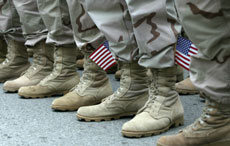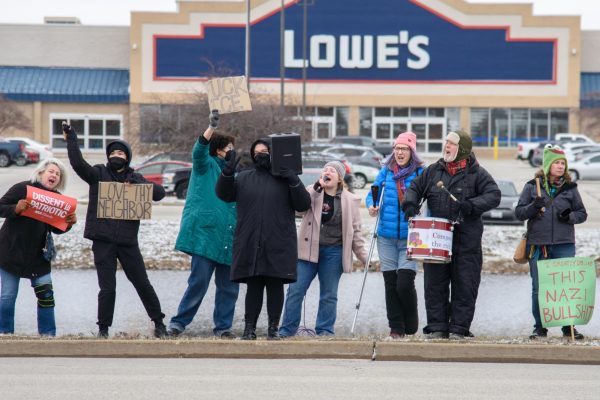UI Club honors memory of former Lebanese Leader

Online Poster
Feb 23, 2005
Last updated on May 11, 2016 at 07:10 p.m.
The Lebanese Cultural Club (LLC) held a poster session at the entrance of the Illini Union Building Tuesday afternoon to honor the memory of former Lebanese Prime Minister Rafik Hariri, who was assassinated on Feb. 14.
On display were poster boards with biographical data about Hariri, as well as information about his devotion to Lebanon and his vision for the country’s future – spelled out on a poster as “sovereignty, independence and freedom.”
Hariri, along with 16 others, was killed in a bombing attack in Beirut, Lebanon. Another 137 people were wounded in the blast.
Sara Salloum, graduate student and president of the LCC, said she was shocked when she learned of Hariri’s death. Salloum said the attack was devastating to the Lebanese people.
Get The Daily Illini in your inbox!
“Not only was this an attack on one individual, but it was an attack on the promise for a better future for Lebanon,” she said. “Regardless of what you think of Hariri, this attack was unfounded and cowardly.”
Saad El Marzouk, graduate student and treasurer of the LCC, said Hariri was a very honorable man who offered many opportunities and advancements to the nation and people of Lebanon.
“He was responsible for turning the country around after the civil war in 1975,” Marzouk said. “He made unprecedented changes to the area of downtown Beirut after the civil war destroyed the land.
“He helped make Beirut into one of the most developed urban cities of its time. Other nations, such as Russia, were looking toward our example to model their own downtown cities.”
Hala Jawlakh, graduate student and LCC member, said Hariri’s progress went far beyond rebuilding the war-torn country.
“Hariri has done so much for the country of Lebanon,” she said. “Perhaps one of his most positive aspects was the scholarship he created in a program known as Hariri’s Foundation.
“Hariri used his own personal money to fund the education of students just like us,” said Jawlakh, who received a scholarship from the foundation.
Salloum said it is important to note that Lebanon was the first country in the region to promote democracy, a definite goal of Hariri’s.
“Although everyone notices that Israel promotes democracy, they often forget that the first democracy in the region was found in Lebanon,” she said. “In Lebanon, we truly value and support democracy, as all citizens are allowed to vote.”
Saad Khairallah, graduate student and LCC member, said that despite all the negativity surrounding the attack, there is one major positive aspect.
“The four of us here are all from different religions within Lebanon, but we have come together to rally for our common cause,” he said.
“Within Lebanon, there are so many different religious groups, and these groups are constantly in conflict with one another,” Jawlakh said. “This is what led to the civil war in 1975 … Before the attack, many Lebanese people were disunited. Now, we stand together in a united front – we are unified in anger.”
Khairallah said the members of LCC all share a common desire for the future of Lebanon, one that Hariri had also strongly supported.
“Hariri aimed at creating a peaceful, prosperous, and stable country,” Khairallah said. “Although he is now gone, his vision for Lebanon is only now beginning to strengthen.”





